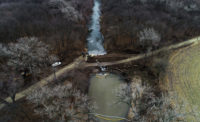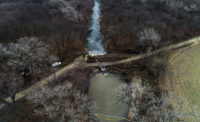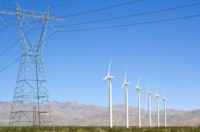Canada’s energy regulator has delayed an expected decision whether to allow expansion of the federally-owned Trans Mountain oil pipeline to use pipe with a different diameter, wall thickness and coating in a revised route for a 2.3-km section of the nearly completed 980-km project until after builders further brief officials at a hastily called Jan. 12 hearing in Calgary, Alberta.
The regulator denied the variance on Dec. 5, but the developer again requested it, claiming the project schedule and cost would be strongly affected and seeking a Jan. 9 decision.
The change would be in one of the last sections of the line expansion from Edmonton, Alberta, to Burnaby, B.C., a port near Vancouver, which would nearly triple oil capacity to 890,000 barrels per day for shipment to U.S. and Asia refineries, said project owner Trans Mountain Corp.
The country's first and only west coast oil carrier, the estimated $22.5-billion project has been buffeted by inflation, labor and supply chain challenges but is about 95% finished, said the U.S. Energy Information Agency on Jan. 8.
At issue is installation of previously approved 36-in.-dia pipe that TransMountain said last month has been subsequently slowed by “the hardness of the rock and the complexity of 2,300-m horizontal directional drilling.” Continued construction through the hard rock could compromise a borehole, cause drilling equipment to fail and require a new installation plan, the firm noted.
This could result in a "catastrophic" two-year delay for the expanded line, which has been set to operate by the end of March, the company said, claiming about $200 million in lost revenue for each month of delay. The firm proposed narrower 30-in. pipe.
In denying the variance, the regulator said Trans Mountain failed to “adequately address concerns about pipeline integrity and related environmental protection impacts.” It speculated that pipe or components “not meeting specifications could lead to failure ... under pressure testing or operating conditions."
The Trudeau government bought the line from a private developer in 2018 to ensure the expansion was done. Growth in Canada crude oil production is concentrated in Alberta, which in 2022 accounted for 82.7% of the country's total, up from 76.1% in 2012, says the Energy Information Agency.
But in a poll conducted last year by an environmental law advocacy group, more than two-thirds of Canadians opposed paying for pipeline cost overruns.






Post a comment to this article
Report Abusive Comment